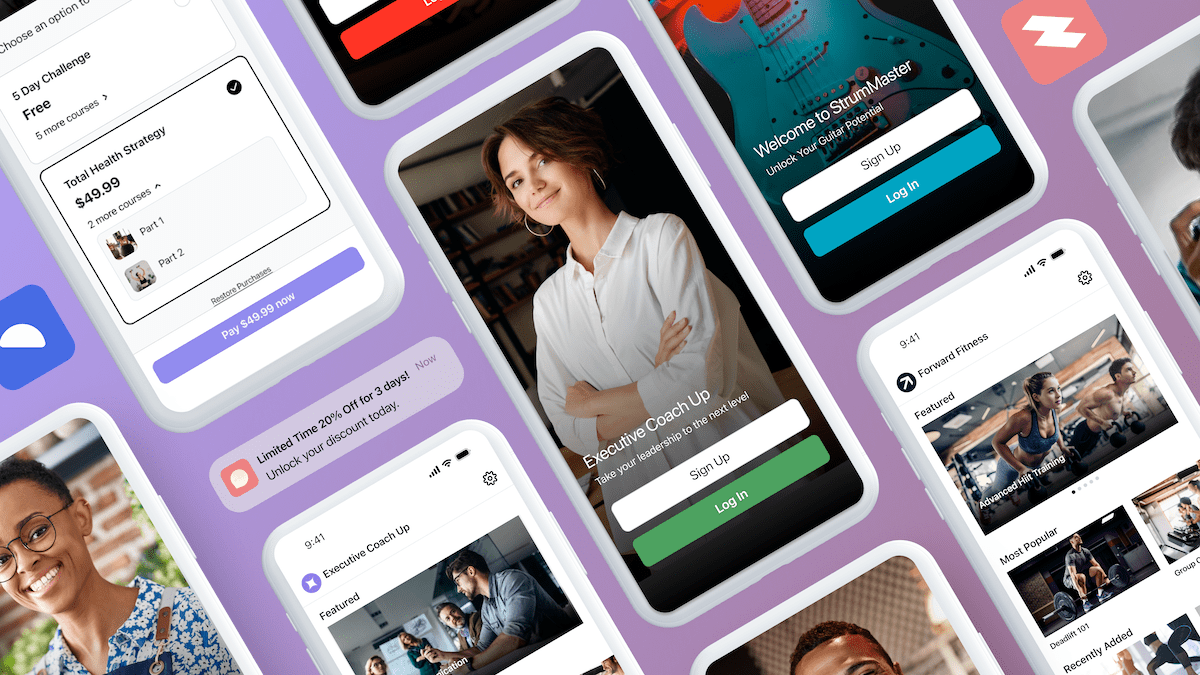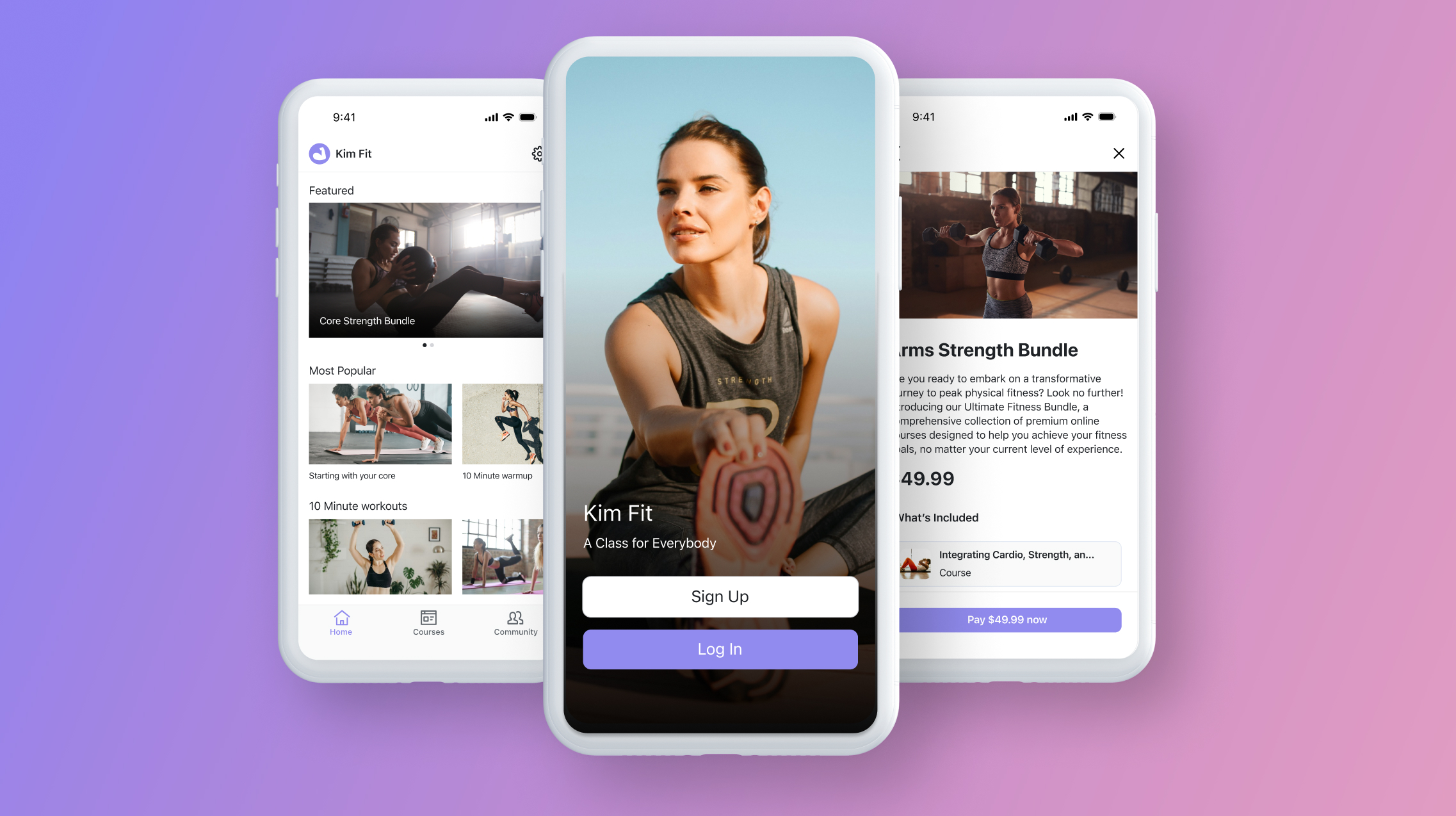Kajabi, the video and web hosting platform for content creators to sell online courses, announced Thursday the official launch of its no-code branded mobile app offering, letting users host their own customized native app through the App Store and Google Play.
Kajabi already has a mobile app for hosting online courses, but this new product allows creators to control the user experience and interact with customers in a new way. Creators can customize their app’s icon, login screen, layout, and content, including the welcome screen, explore page, push notifications, custom links, carousels featuring online courses, other in-app purchases like bundle offers, and more. There’s also a separate AI chat assistant that can be trained to answer questions and is integrated into the app.
“Our North Star has always been to increase commerce for creators,” Sean Kim, Kajabi’s chief product officer and former head of product at TikTok, told TechCrunch. “Whether we’re helping you make your first dollar, reach profitability, or reach financial freedom, all of our resources are pointed towards this goal. The branded mobile app is the latest product we offer that helps our customers increase commerce, as well as reach their businesses.”
Branded apps were highly requested among creators, and according to Kajabi user data, 62% of creators believe that a branded app is crucial for their businesses. Fifty-five percent said they’re willing to pay up to $100/month for a custom-branded app.
Kajabi has been testing the product with over 800 beta users. As of today, it’s available to all Kajabi users.
Compared to the traditional app development process, which can take six months and cost upward of $60,000, Kajabi argues its offering is a cost-effective solution. Kajabi develops already-done apps that can go live in weeks, saving creators both time and money. This is a reassuring proposition for creators who have previously invested in app development that didn’t meet their expectations.
One Kajabi client, nutritionist Raquel Britzke, told us she spent $10,000 building an app that ultimately didn’t perform as she hoped.
“I tried doing my own app before and I was not successful. It’s so much work and I spent so much time and money to make the app. … I have thousands of people that use [my] services, so we need to make sure that the app works for a large number of people,” she said. Now Britzke can quickly bring existing customers over to an app that’s powered by Kajabi and optimized to handle all her instructional videos, she explained.
Though more affordable than the standard app development process, building a branded app with Kajabi is still an investment. Only creators with existing courses on the platform can buy the add-on, which ranges from $89 to $199 per month. The higher-priced plan comes with a Community feature where customers engage with creators in live video calls and chats, attend meetups, and complete challenges.
Kajabi offers three subscriptions: Basic ($149/month), Growth ($199/month), and Pro ($399/month).
Currently, Kajabi only supports the sale of courses as one-time purchases, not subscriptions, but that will soon change. The company is also planning to offer community and coaching products as in-app purchases. (It’s also important to note that Apple and Google charge 30% for all in-app purchases, while companies making under $1 million annually are only charged 15%.)
Additionally, the company says it will continue to improve and add features, and all apps will be automatically updated. While Kajabi doesn’t support coding customizations, it’s planning to add customizable widgets that can be integrated into the app. Other features in the works include offline viewing, interactive quizzes, and personalized experiences.
The company joins many other competitors in the no-code app-building space, including Wix, which charges $200 per month for its branded app; Bubble, which charges between $29 and $529 per month; Vidapp ($389); Passion.io ($297); and Thinkific ($199), among others.

